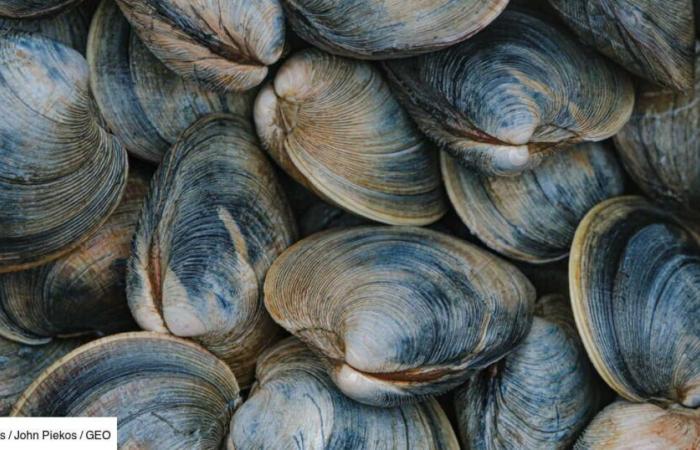We have a lot to learn from animals. Clam shells could help scientists better understand one of the key oceanic mechanisms of global climate: the Atlantic Meridional Overturning Circulation (AMOC), a complex system of ocean currents that transports heat and salt between Northern and Southern hemispheres.
This mechanism plays an essential role in regulating the planet’s climate, for example by influencing temperatures in Europe and rainfall patterns. However, it could be disrupted by climate change and the consequences would be dramatic for the Earth.
Clam shells, living archives for scientists
A very special clam, named Hafrunplayed a key role in this research. 507 years old, it recorded changes in temperature and salinity in the waters off Iceland in its shell. The shells of these creatures act as “marine archives” that allow researchers to trace oceanic developments over several centuries and identify warning signs of a collapse of the AMOC, the Washington Post tells us in an analysis published this Tuesday, December 31.
The Eye of the Climate season 2: the finalists of the photo competition on change1
David Reynolds, a marine climatology researcher at the University of Exeter, explains to the English-speaking newspaper that the clam shells provide him and his colleagues with a “natural laboratory” which allows them to better understand ocean circulation. Analyzing these shells can spot anomalies (like changes in temperature or salinity) invisible in modern data, because the clams have recorded this information for hundreds of years.
By delving into these natural archives, experts hope to predict the evolution of the Atlantic circulation system, the slowing of which would have catastrophic consequences for the global climate.
Indeed, the AMOC system plays a crucial role in balancing the Earth’s climate by transporting heat from the equator northward, thus warming Europe and changing rainfall patterns. However, Greenland’s melting ice adds fresh water to the Atlantic, disrupting this circulation and threatening to cause a collapse. If this happens, colder winters in Europe, a rise in sea levels and global climate upheavals would be feared, specialists warn.
Clams, and in particular the species Arctica islandicaallowed David Reynolds and his team to reconstruct past climatic periods. A study they published in 2016, based on clam shells dating back more than 1,300 years, revealed early signs of instability in the Atlantic circulation, well before the start of the Little Ice Age. The researchers observed temperature fluctuations and chemical changes in the shells, suggesting that the AMOC had already weakened before this cooling period. These findings continue to inform our understanding of current risks related to climate change, including the possible decline of the AMOC.
The need to limit greenhouse gas emissions
Now, scientists are looking for similar signals in the shells of modern clams, which lived in the last century, to detect a current weakening of the AMOC. Beatriz Arellano-Nava of the University of Exeter has been studying them and has already found signs of instability in the “subpolar gyre”, a crucial component of the AMOC, suggesting the system was approaching a tipping point , notes the American daily. This means that the system could soon reach a threshold at which it becomes more difficult to stabilize it.
Although this data provides valuable insight into the situation, uncertainty remains. Current environmental conditions are different from those in the Middle Ages, which complicates the interpretation of the signs. The researchers emphasize the importance of strengthening monitoring of the AMOC to anticipate possible ruptures.
Finally, faced with the risks of a partial collapse of this vital system, limiting greenhouse gas emissions remains crucial to avoid dramatic consequences on the global climate. This includes policies to reduce gases responsible for global warming, such as carbon dioxide, to slow the melting of ice and preserve the balance of ocean circulation.






